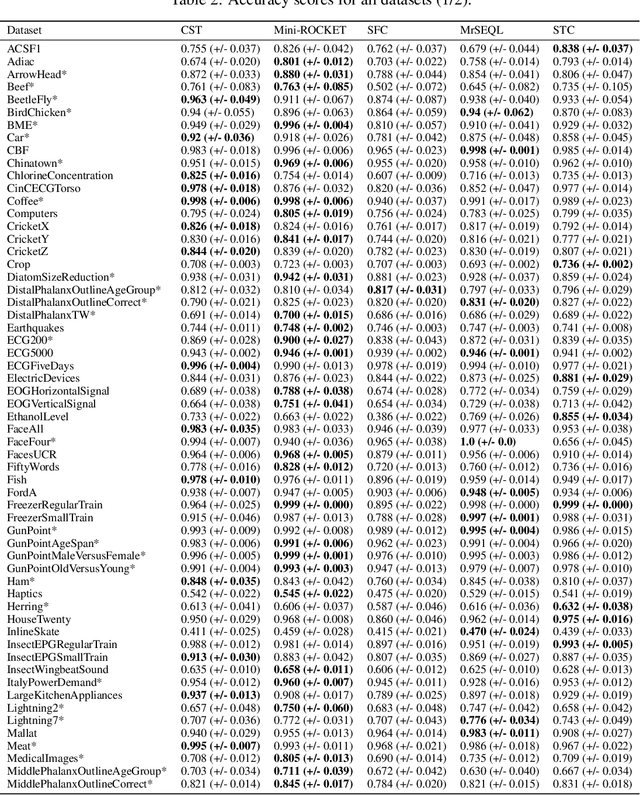Convolutional Shapelet Transform: A new approach for time series shapelets
Paper and Code
Sep 28, 2021



Shapelet-based algorithms are widely used for time series classification because of their ease of interpretation, but they are currently outperformed, notably by methods using convolutional kernels, capable of reaching state-of-the-art performance while being highly scalable. We present a new formulation of time series shapelets including the notion of dilation, and a shapelet extraction method based on convolutional kernels, which is able to target the discriminant information identified by convolutional kernels. Experiments performed on 108 datasets show that our method improves on the state-of-the-art for shapelet algorithms, and we show that it can be used to interpret results from convolutional kernels.
 Add to Chrome
Add to Chrome Add to Firefox
Add to Firefox Add to Edge
Add to Edge